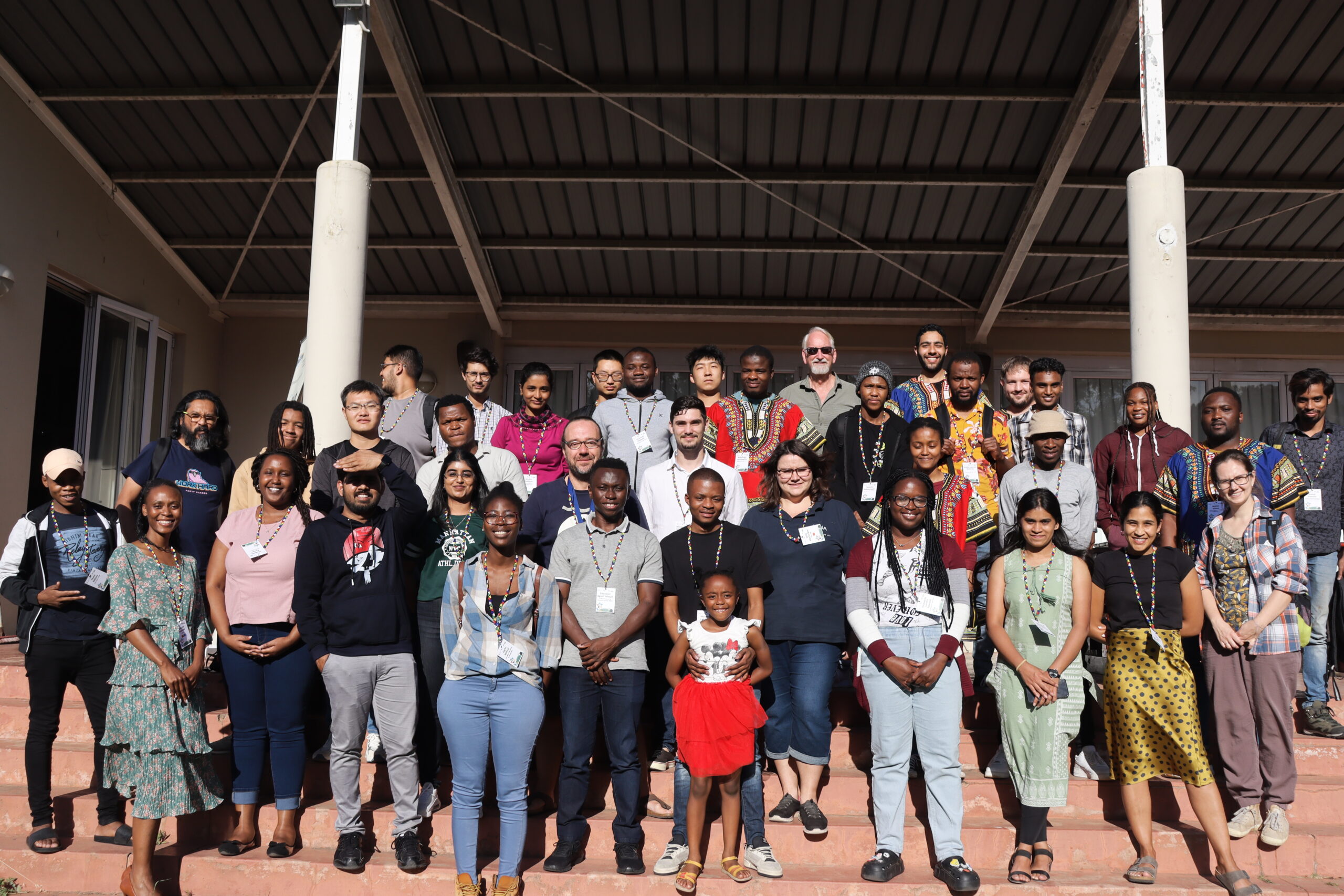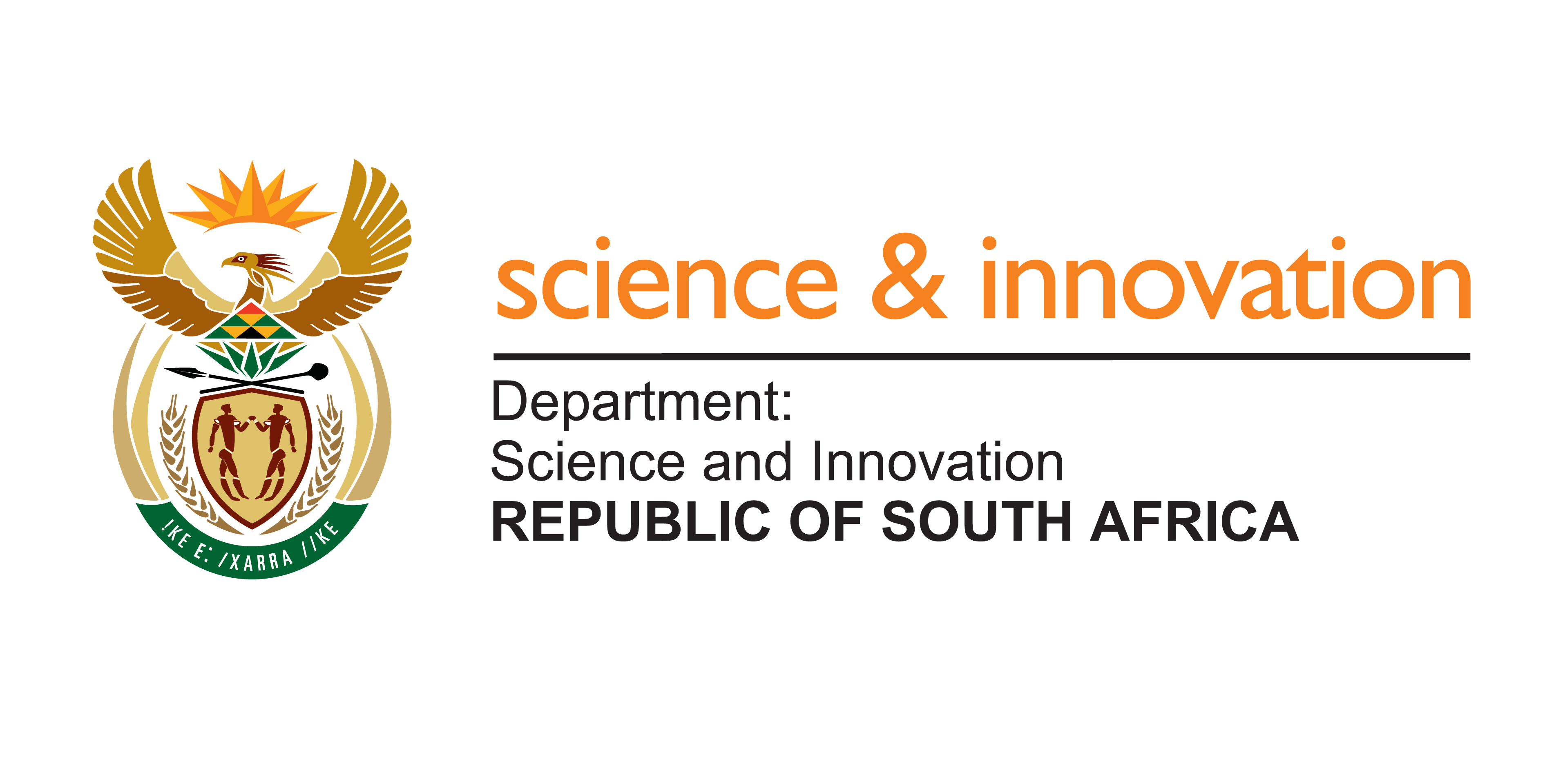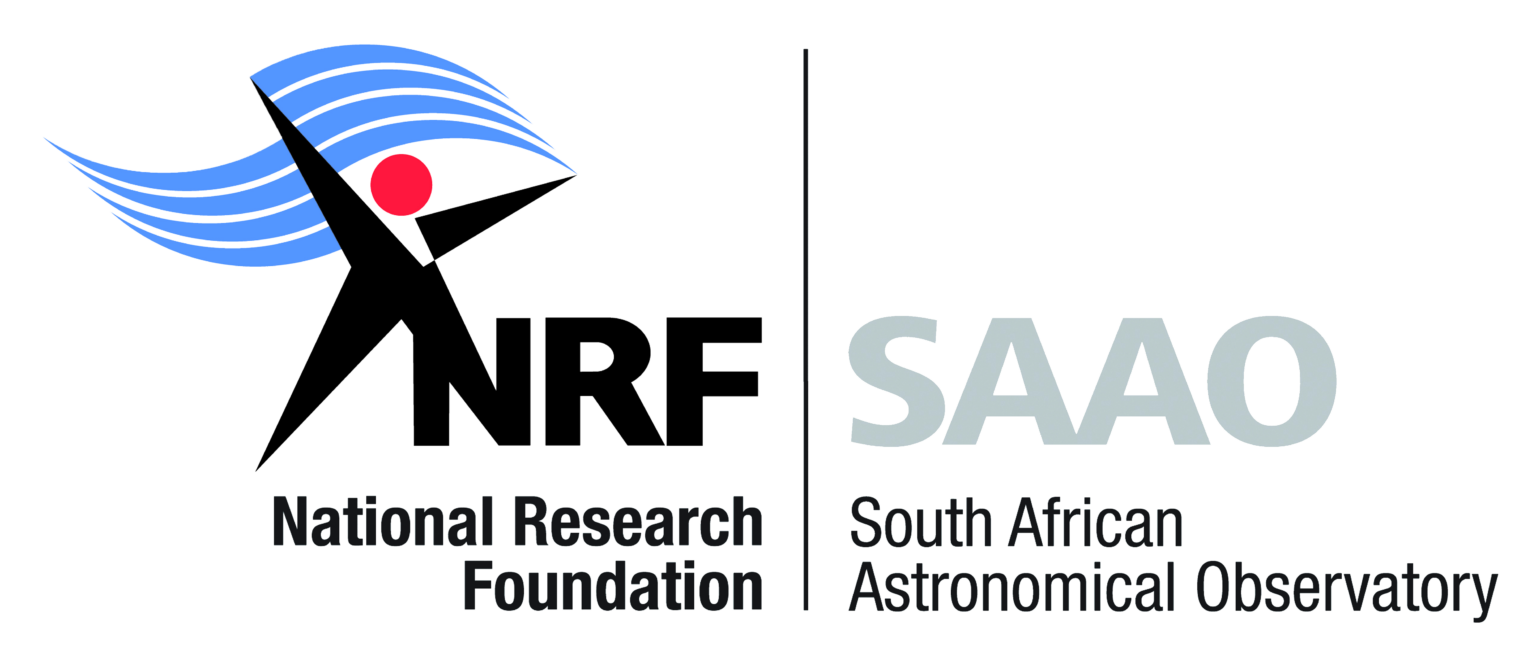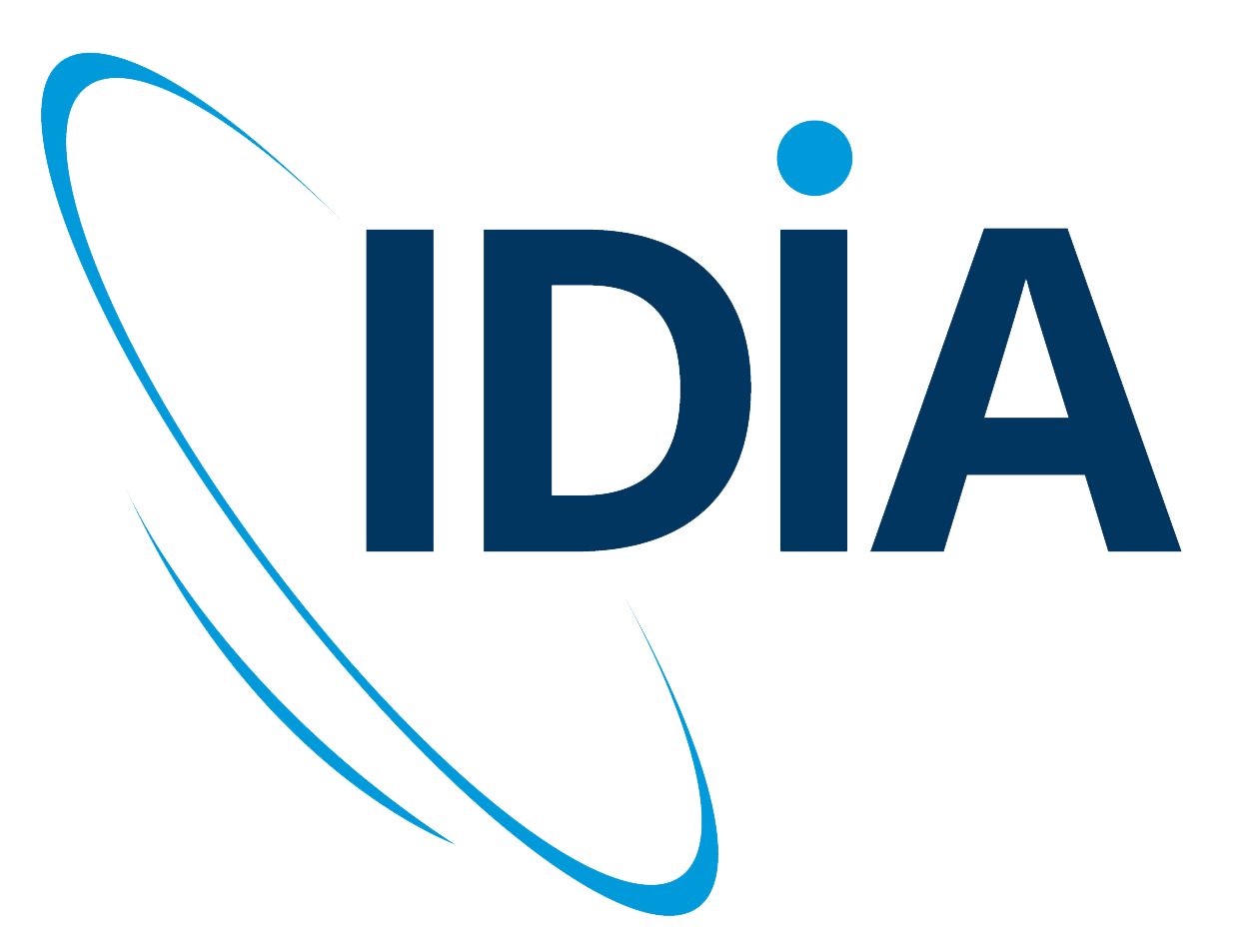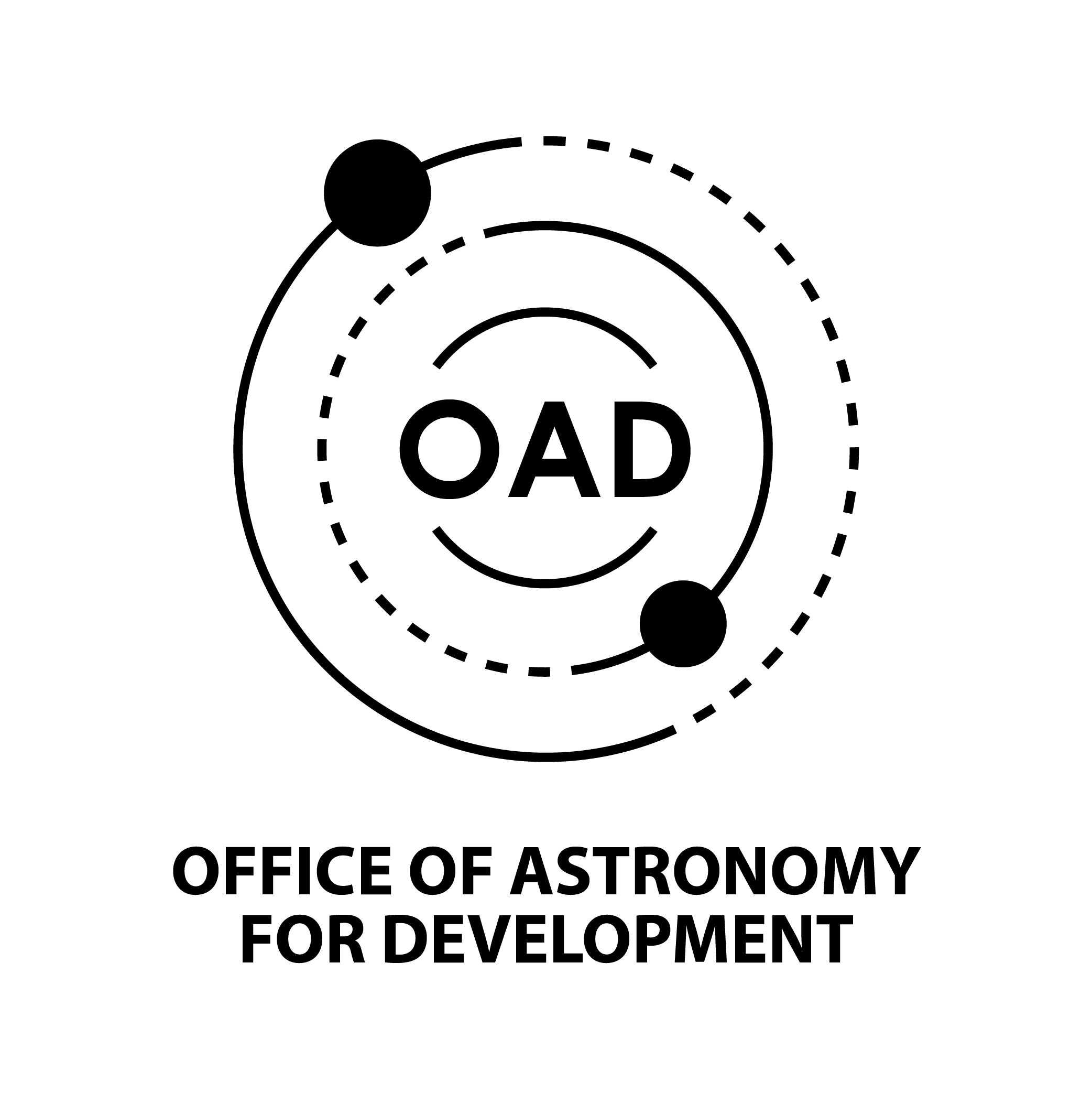A call for the Data Science community and science communicators from around the World! Are you interested in hosting a hackathon about data science in your home institute? The Hack4Dev project is issuing a call for interested groups to sign up to a) get training on how to run your own hackathon and b) run it at your home institute using Hack4Dev support. Trainer training will take place in Johannesburg, South Africa, at WITS University in October 2024, and regional hackathons will be expected to take place next year from February to April 2025. Continue reading to find out more about Hack4Dev, the two-stage process, and the application procedure (including eligibility and selection criteria).
1. An Introduction to Hack4Dev
Since 2018, data science hackathons have been implemented through collaboration between the Inter-university Institute for Data Intensive Astronomy (IDIA), DARA Big Data (previously funded by the UK’s Newton Fund), and the International Astronomical Union’s Office of Astronomy for Development (OAD). The Hack4dev project originated from these efforts and has since expanded to include additional partners, leveraging hackathons to foster global development. With combined efforts reaching over 500 participants across Africa and beyond, hackathons focusing on data science skills development have been held in various countries, including South Africa, Kenya, Peru, and Mozambique. They provide exposure to current techniques in data science and machine learning while grounding participants in real research work. Our hackathons have flourished due to the remarkable dedication of participants, the invaluable guidance from tutors, and the collective efforts of everyone involved. We extend heartfelt thanks to all past participants, tutors, organising teams, and partner organisations and offer a special acknowledgement to Carolina Odman, the founder of Hack4dev, for her invaluable contributions and visionary leadership.
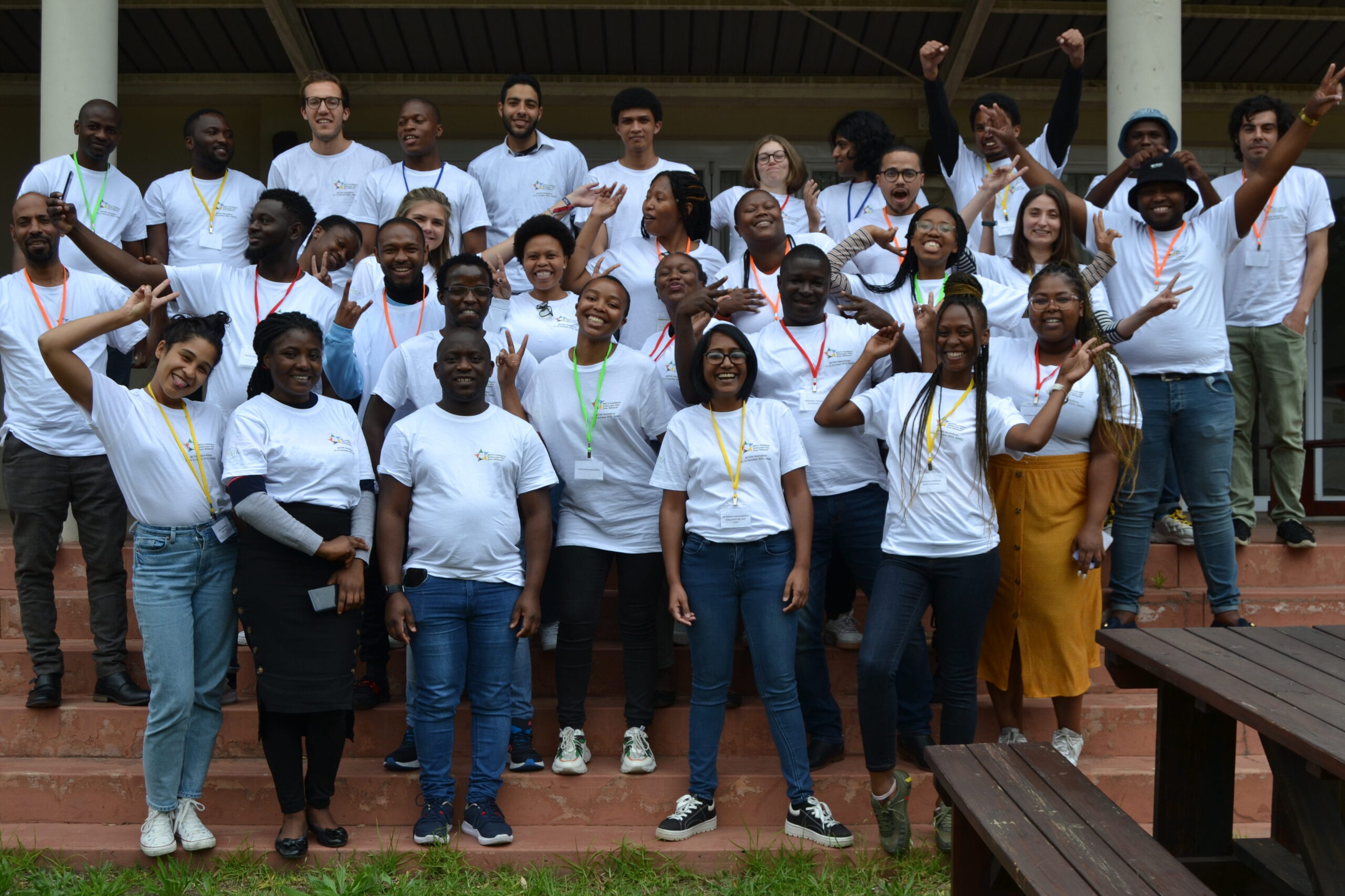
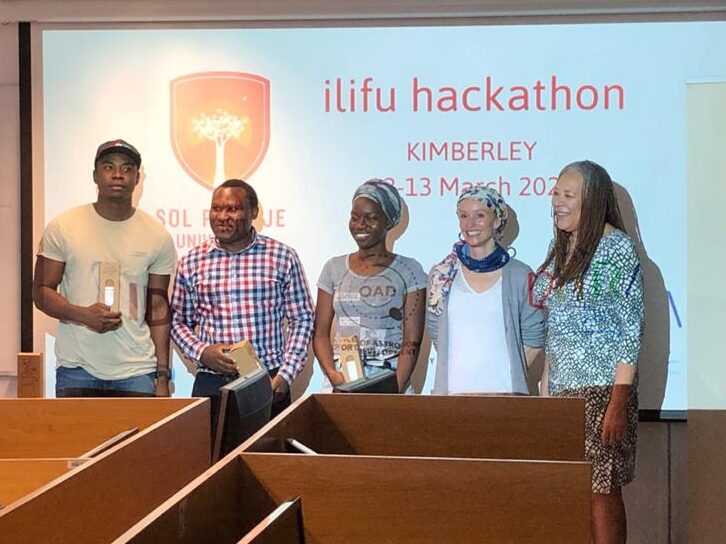
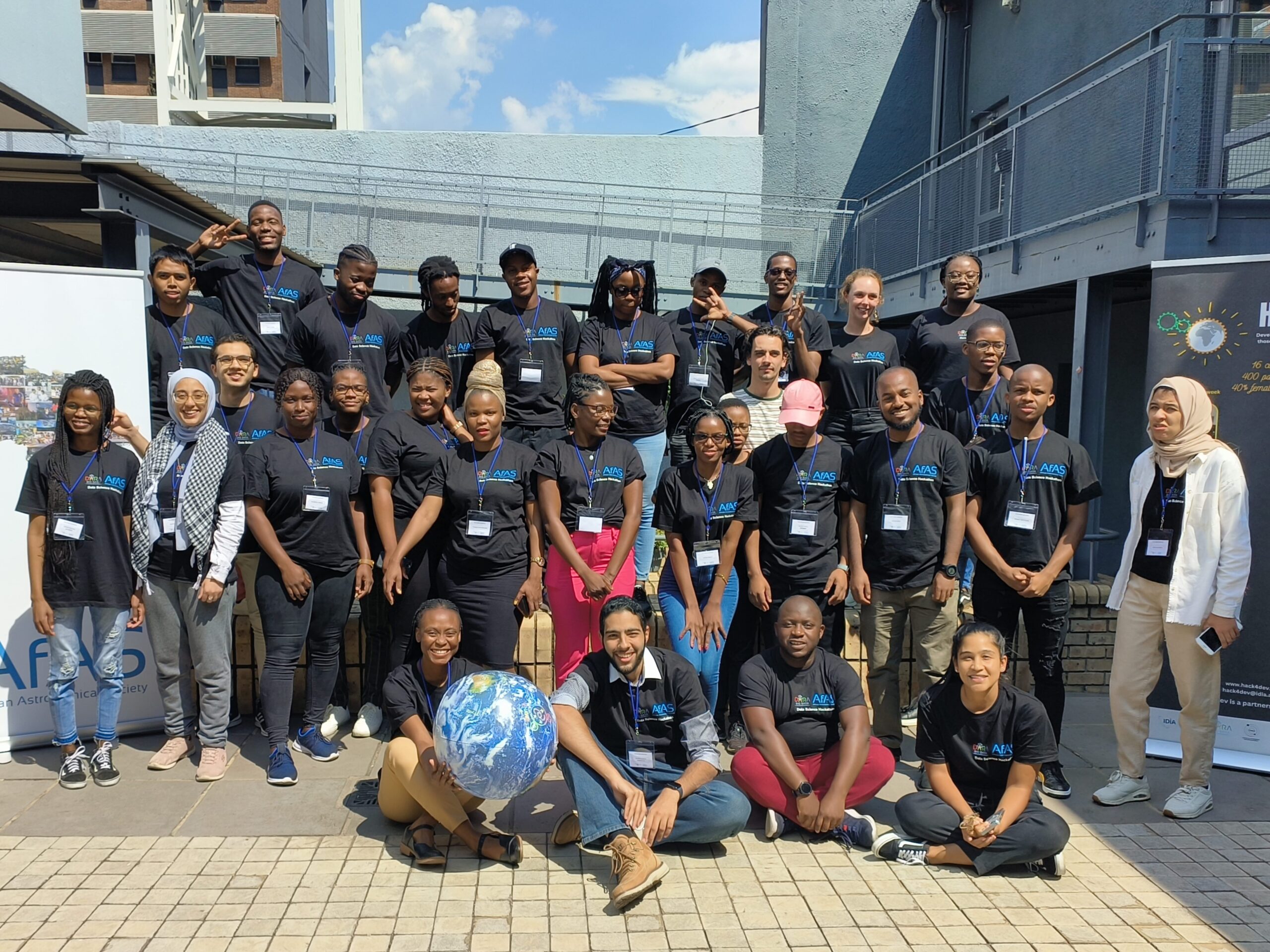
Building on our extensive experience, Hack4dev is excited to embark on a new mission with an even broader societal impact. Our vision for the 2024 Data Science Hackathon programme is to establish a two-stage event. This initiative is designed to equip aspiring trainers with the necessary skills to conduct their own hackathons within their institutions and communities, setting the stage for a more expansive and inclusive approach to data science education and application.
2. The Two-Stage Process
- Stage 1: Trainers Hackathon (TH): A select number of teams will be trained to conduct impactful data science hackathons, focusing on the technical content and the logistics of event organisation.
- Stage 2: Regional Hackathons (RH): Following the successful selection and training of trainers in Stage 1, these trainers will organise regional hackathons at their local institutions within a specified timeframe, aiming to spread data science skills and undertake research projects.
3. Key Dates
For Trainers Hackathon:
- Applications Open: 18 June – 22 July 2024 (Deadline Extended)
- Confirmation Date: 05 August 2024
- Trainers Hackathon Event: 23 October – 25 October 2024 (new dates)
For Regional Hackathons:
- Call for Applications Across All Regions: 24 October 2024
- Regional Hackathons Hosting Period: 03 February – 11 April 2025
Teams will be asked to provide their availability, and the Hack4dev team will assign specific weeks for each to host their Regional Hackathon. This ensures organisational coherence and efficient resource allocation.
4. This Call is for Stage 1: Trainers
This specific call is inviting applications for the Trainers Hackathon. Selected trainers will play a pivotal role in the subsequent organisation of Regional Hackathons, making this the cornerstone of the entire Data Science Hackathon initiative.
5. Who should Apply
We seek dynamic teams from around the globe with a blend of data science knowledge, event organisation skills, and a passion for knowledge sharing. If you believe in the power of data science to drive change and are eager to lead by example, this is the call for you.
6. What is required to apply?
- A dedicated team of organisers, with the team leader responsible for the application.
- A suitable venue for the Regional Hackathon.
- Support from a University faculty member.
7. Eligibility
Applicants must meet the following:
- Team Composition: Teams of 3-5 members should include at least two with expertise in data science and command line operations, one of whom must be the team leader with data science/ML experience. The team should also have proven experience in event management/outreach.
- Commitment to Education: Demonstrated commitment to community outreach and engagement.
- Previous Participants: We encourage past participants and tutors of the DARA, DARA Big Data and Hack4dev hackathons to apply. Additionally, we eagerly welcome applications from new individuals as we strive to expand and diversify our community.
- Hackathon Execution: All teams must commit to organising Regional Hackathons at their institutions within the suggested time frame of 03 February – 11 April 2025
- Target Audience Alignment: Teams must ensure their upcoming Regional Hackathons cater to students with a strong background in Python coding. Further details on Regional Hackathon eligibility will be introduced during the data science trainers hackathon.
- Code of Conduct: Adherence to the HACKATHON CODE OF CONDUCT is mandatory, ensuring a respectful, inclusive, and productive environment for all participants.
- Venue and Internet: Teams must secure a suitable venue at their own institution for conducting the Hackathon with reliable internet speed (minimum of 4Mbps) to ensure a smooth and effective event, e.g. a computer lab at your institution.
- Trainers Hackathon Participation: One member (preferably the team leader) from each accepted team is required to attend the Hack4dev Trainers Hackathon event in person, hosted at the University of the Witwatersrand (WITS), South Africa, with the remaining team members participating online.
- Participant Equipment: For Regional Hackathons, participants are expected to bring their own laptops to access our cloud computing system ilifu, especially in venues not equipped with computers.
- Institutional Support: Upon acceptance, a formal letter of support from a faculty member or institution is required, confirming the team’s ability to access the necessary permissions and resources for a successful hackathon.
- Global Participation: The call is open to teams worldwide. Regardless of your location, we encourage you to apply if you have the skills and the drive.
Limitations and Funding:
- Regional Hackathon Costs: Regional hackathons are meant to be easy to implement and low-cost to reach more communities. Therefore, no accommodation or transport fees will be allowed. All participants must be able to commute to and from the regional hackathon venue.
- Participant Cap for Regional Hackathons: Teams should aim for a maximum of 30 participants per hackathon. Venues accommodating only up to 20 participants are permissible.
- Trainers Hackathon Costs: Limited funding is available to cover expenses for the Trainers Hackathons, including flights, catering, and accommodation for one member of each selected team, provided they are not already in the event’s country. However, individuals who are able to cover their own full or partial costs are also encouraged to apply.
- Financial Support for Regional Hackathons: Teams are encouraged to seek additional funding from external sources to support catering for their regional hackathons, where possible, limited to a maximum of three days. Funding for goodie bags and prizes will be provided.
8. Selection Framework
| Selection Criterion | Corresponding Questions in the Application Form | Scoring Guideline |
|---|---|---|
| Team Composition and Experience | 4 a. Team Credentials, 4 b. Specific data science experience, 4 c. Examples of past events, 4 d. Team dynamics and collaborations | How diverse and experienced is the team in organising similar events and data science? |
| Motivation and Impact | 5 a. Team motivation and intended change, 5 b. Benefits to the audience and community, 5 c. Sustainability plans | Is there a clear vision and long-term impact plan for the community and participants? |
| Implementation Plan | 6 a. Venue suitability 6 b. Strategies to attract participants, | How well-planned and feasible are the logistics and execution strategies for the regional hackathon? |
| Budget and Financial Summary | 7 a,b,c,d,e,f – Budget | is the budget detailed and does the financial plan demonstrate sustainability and resourcefulness? |
9. Support and Resources for Selected Teams
Selected teams will receive:
- Training and Materials: Training sessions focus on event organisation, complemented by a comprehensive hackathon toolkit for streamlined planning and execution.
- Hands-On Experience: One team member will participate in the Trainers’ Hackathon in person, gaining valuable insights and experience to share with their team.
- Uniform 3-Day Program: All selected teams are required to follow our detailed 3-day program, ensuring consistent hackathon implementation across teams.
- Real-World Research Projects: Access to research projects with explanatory notebooks for practical learning.
- Cloud Computing Support: Both trainers and regional hackathon participants will have access to ilifu, our cloud computing system.
- Financial Assistance: While funding is limited, we aim to provide financial support for essential hackathon expenses, subject to availability.
- Promotion and Communication: Assistance in promoting the Regional Hackathons through Hack4dev’s channels, as well as ongoing mentorship and support for the organising teams.
